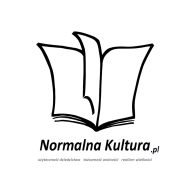name: Franciszka; last name Arnsztajnowa
She was born on February 19, 1865 in Lublin to a polonized Jewish family. The exact date of her death is unknown, but it is estimated that she died in 1942 in Warsaw or Treblinka.
Her father was Bernard Meyerson, merchant, owner of a store with Blavatnik and Nuremberg goods and director of the Credit Society of the city of Lublin. Her mother Malwina from house Horowicz was a professional writer. In her novels (Dawid, Z ciasnej sfery) raised the issue of assimilation of Jews in Polish society. Her great-grandfather was Rabbi Azriel Horowitz, known throughout Poland as the „Iron Head”. Her brother Emil Azriel Meyersohn was an outstanding philosopher, who gained recognition in France. Albert Einstein said of him, „he convinced him of things which he himself could hardly assume.” When he emigrated to Paris, he vowed that there he would speak the impeccable polish that „the elder gentlemen would speak in Lublin.”
Franciszka graduated from the girls’ gymnasium in Lubin, and, thanks to her father, she completed her studies at the University of Pedagogy and Natural Sciences in Germany. However, she focused her attention more to reading books independently than to university studies. She also broadened her knowledge with trips to the countries of Southern and Western Europe. She was fluent in several languages, among them, German, French and English. Her translations of such authors as Kipling, Wells, Somerset were in a high regard Her translation of Ulysses by Joyce is also widely known and appreciated.
In 1885 she married a well – known Lublin doctor Marek Arnsztajn. The young couple bought a townhouse at 2 Zlota Street in the Lublin Old Town and settled there. Their house was open to members of the Polish Military Organization and the Polish Socialist Party, as well as, young members of the Union of Active Struggle and Secret Scouting Organisation. The son of Franciszka and Mark, Jan Arnsztajn, organized the celebrations of the anniversary of the November Uprising, during which patriotic poems were recited.
Franciszka Arnsztajnowa taught courses for illiterates, both children and adults. Together with her husband, she was a co-founder of the Lublin Society for the Spread of Education named „Light”. Through the structures of the society, Dr. Marek Arnsztajn treated the Jewish and Polish poor free of charge.
In the Interwar Period Arnsztajnowa worked as an archivist in Józef Piłsudski Institute.
For her socio-patriotic activities, she was awarded the Knight’s Cross Order of Polonia Restituta Fifth Class, the Legion’s Cross, the Cross of Independence, the Cross of Valour and the Silver Laurel of the Polish Academy of Literature.
Later in life, tuberculosis damaged her hearing, forcing her to use a bakelite tube as a hearing aid, and sometimes she would ask people to write down something she did not understand. She learned the ability to read lips.
However, her disabilities and more than thirty years of age difference did not prevent thirty-year-old Józef Czechowicz from befriending her. Together with him, she founded the Lublin Writer’s Union in 1932. Arnsztajnowa took the position of president of the association. Czechowicz became a frequent guest at her home on Złota Street, and it was probably during one of these visits that the idea of publishing a volume of poetry together was born.
In the 1930s, Franciszka was already a well-regarded artist in the Lubelskie area, due to the publication of her poems in newspapers: „Kurier Lubelski” and „Dziennik Lubelski” and „Ziemia Lubelska”. Her theatrical plays were exhibited throughout the country and her work was highly esteemed.
The poet participated in the social and cultural life of Lublin, debating poetry with young creators of the Lublin poetic avant-garde, centred around the magazine „Reflektor”, which included Józef Czechowicz.
In 1936, Franciszka Arnsztajnowa, already an older woman, left for Warsaw, although she did not feel at home in the capital. She couldn’t find her place in a big city. First she lived on Wspólna street, then she moved to the Old Town. A frequent visitor to her new home was Czechowicz, who had also moved to Warsaw, and who had yet to say goodbye to her before fleeing bombardment of Warsaw in 1939. He died under the rubble in Lublin a few days later.
This was not the end of bad news, as the poet also lost her beloved grandson Krzysztof Mieczysławski in the September campaign, he was killed during a raid on German tanks in the Battle of Kutno.
After the Germans entered Poland, Arnsztajnowa and her daughter shared the fate of other Warsaw Jews. Her exact fate is unknown. Reportedly, her daughter Stefania Mieczysławska first died of typhus, and Franciszka was executed in the hospital along with the rest of the sick at the All Saints’ Church. Witnesses of the era say that she went to her death with dignity, pinning to her black dress the decorations she received for her activities in favor of independent Poland. Other sources state that she died in the Treblinka camp in 1942.
